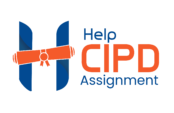This lesson will look at improving workplace well-being by delving into the CIPD’s key values in depth. For example, self-development, leadership, and management skills for promoting employee resilience; creating an inclusive environment that promotes diversity within and between teams/departments through workplace culture change (including positive reinforcement); goal setting with mindful processing techniques such as mindfulness meditation or yoga breathing exercises – all of this is designed specifically for the two-week timeline so you can get stamina.
This lesson emphasises the significance of workplace well-being to both employer and employee results in today’s workplace. It provides learners with comprehensive knowledge about how to work, healthcare provisions are linked together for better overall well-being, and understanding of social responsibilities organisations have towards their employees based on key theories within this area – all while developing critical thinking skills required when engaging with an agenda focused primarily on Wellness initiatives themselves.
What you will learn
The student will investigate definitions of well-being and why this concept is important to companies and employees in this unit. As a learner in this subject, you will investigate basic theories related to workplace well-being and how businesses address it. You will also understand the connections between work, health, wellness, and people management practices and processes, as well as identify individual and group factors that influence workplace well-being as a learner. The learner will also look into the link between employee well-being and business outcomes, such as how it affects performance and productivity. You’ll also learn how organisational culture affects employee well-being, the impact of well-being programs, and the challenges managers may face when personalising initiatives for employees.
This unit is suitable for persons who:
This unit is necessary for the following individuals:
- Individuals who work in a company are responsible for implementing human resource policies.
- A person who wants to work in human resources has obtained the CIPD Foundation Diploma in Human Resource Practice.
- An experienced people practitioner in a senior people practice position wants to expand and deepen their capacity, knowledge, and skills to have a greater impact on strategy, policy, and people.
- A person is pursuing a professional qualification in human resources (HR) or learning and development (L&D) management to further their career.
- A desire to expand their autonomy, influence, and judgment to strategically lead and drive organisations and their employees.
Learning outcomes
After finishing this module, learners will achieve the following key learning outcomes, which are further divided into sub-categories. The student will be able to comprehend the following learning outcomes:
- Becoming aware of the importance of workplace wellness in today’s workplace (Learning Outcome 1)
- Recognising the links between work, health, well-being, and people management tactics and processes (Learning Outcome 2).
- Recognising how the employer’s and employees’ well-being affects the overall approach (Learning Outcome 3).
- Recognise the significance of a well-being strategy in maintaining organisational performance (Learning Outcome 4).
What are the entry requirements?
The CIPD does not always regulate the legislative requirements institutions have for their candidates. Some of these criteria are unique to each institution, while others apply to all students enrolled in the unit. Institutions have developed these diagnostic tests to determine if candidates have the needed reading and numeracy skills to finish the Well-Being at Work program (7OS06). Most universities require candidates to have a working knowledge of the English language to enrol in any programme. For example, some universities require students to have a C/4 or better in English at the GCSE level. Other universities demand a 6.5 IELTS/ESOL Level 2 equivalent from applicants who speak English as a second language. The CIPD, on the other hand, has a policy for non-native English speakers that outlines appropriate English language entry requirements.
According to most schools, applicants should have a bachelor’s degree, CIPD level 5 certificates, and prior human resources experience. Significant strategic people practice experience may be substituted for a degree in extreme circumstances; however, this is subject to review. CIPD recognises previous learning policies that allow learners to demonstrate that they already possess the knowledge, understanding, or abilities required to meet the assessment requirements and do not need to acquire them through a course of study. For learners who have completed units from a previous CIPD certification, the CIPD, for example, has pre-defined transfer opportunities to this unit as scheduled exemptions. Learners who have completed units from non-CIPD qualifications that they believe will map to units in this qualification may submit an application form to the CIPD for verification, precise mapping, and proof of attainment. Finally, several institutions require students to enrol in the program at least 18 years old. However, candidates for this unit must be at least 21 years old, according to the CIPD.
How we can help
Writing assignments are notorious for taking an excessive amount of time to complete. It is our responsibility to relieve you of your academic responsibilities. We provide writing assistance to students who need help with assignments related to Workplace Well-Being (7OS06). We’ve created a writing platform based on intellectual capacity with you in mind. A collaborative workstation with great minds to help you avoid study headaches, stress, and all-nighters. We are a group of highly skilled writers, editors, and proofreaders whose main goal is to make great work more available to you by removing the pressure of doing the tiresome work yourself. Our team of highly qualified professionals ensures that our clients achieve the highest possible grade for their research and projects. We never turn down a customer’s request, no matter how urgent or complicated it is. We have a stringent anti-plagiarism policy, and each assignment is written fully. We use licensed software to check for originality before submitting any paper to you, ensuring that it is 100 per cent unique. Our highly skilled writers can complete any paper, and you can rest assured that it will be thoroughly researched. We pay special attention to the amount of time and effort put into the paper’s research to ensure that it is thorough and based on reliable sources.
Furthermore, the work must be thoroughly reviewed to correspond to all marking rubrics and reference styles. Many students are concerned about the security of their personal information; however, do not worry; our Privacy Policy ensures that our writing service is safe, secure, and private. Our major purpose is to ensure that every customer we collaborate with achieves academic success.
Related Articles:



